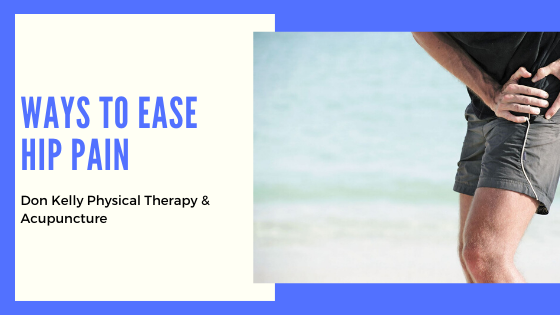Healthy habits and these other suggestions can offer relief when your hips hurt.
Hip pain is a condition that is often easily overlooked in everyday life. We may pass it off as something that will eventually get better. However, depending on what is causing your hip pain, it could actually turn out to get worse with time. To prevent this, it’s advisable to visit a physical therapist and have them figure out what’s causing the pain, and create a routine of physical therapy exercises that can help heal it. Typically, in order to help reduce and eventually eliminate the pain, physical therapists for hip pain will give you exercises that improve strength and increase flexibility.
Don’t Wait: Lose Weight
For every 10 pounds of extra body weight you carry, there’s an added 50 pounds of pressure on your hips and knees. If your joints are feeling the strain, find a weight that works best for you and talk to your doctor about the best ways to slim down. It’ll ease your hip pain and make it easier to move around.
Take a Load Off
Your weight isn’t only about body fat: Your hips also absorb the weight of everything you carry in your hands and on your back. To take the pressure off, use a handcart for groceries and use luggage with wheels. If you carry a purse, consider a backpack style so the weight is even across your back.
Move It to Lose It
It makes sense to rest your hip until the pain eases up. Once it does, prescribe yourself a daily dose of exercise to build stronger muscles and keep joint stiffness at bay. Ask your doctor whether low-impact activities like walking, swimming, or yoga would help ease your condition.
Avoid High-Impact Exercise
Movement will help your hips, but this isn’t the time to take up downhill running or kickboxing. Start slow with a few minutes on a stationary bike or elliptical. As soreness gives way to strength, you can bump up the length of your workouts.
Water Workouts
For the ultimate low-impact exercise, use a pool or spa. Water supports your body and takes some of the stress off your joints. It also allows for freer, smoother movements and provides good resistance to make your muscles stronger. Talk to your doctor or a physical therapist about exercises that will help your hips.
Stretch, Strengthen, and Stabilize
There are also specific exercises that can help with hip pain. They can work the parts of your body that support these joints, including your legs and core. To get the right routine and form, it’s best to work with a professional, like a physical therapist. And don’t push yourself — if you feel pain during a workout, stop.
Use Heat and Cold
Have a bag of frozen veggies handy? Wrap it in a thin towel and press it directly onto your hips to ease pain. Use warmth — like a hot shower or compress — to loosen up muscles right before you stretch.
Heal Without Heels
Sometimes the answer for hip pain is right under your toes. High heels put your foot at an unnatural angle and can throw off your body’s alignment, which can cause hip pain. Try flat shoes instead, and avoid standing for too long in one stretch.
Acupuncture
Acupuncture is an alternative treatment that has been successful in treating chronic pain, including joint pain.
Custom Orthotics
The hip joint is the body’s largest ball-and-socket joint, allowing for fluid movement during running, walking, and more. A cushion of cartilage helps prevent friction as the hip bone moves in its socket. The hip is quite durable, but with age and use, this cartilage can wear down or sustain damage. So can the muscles, tendons, and bones in and surrounding the hip, caused by a number of conditions, including arthritis, Avascular necrosis (or osteonecrosis), certain cancers, Bursitis, Hip fractures, Hip labral tear, Muscle or tendon strain, and Tendinitis.
In most cases, treating your hip is more likely to be successful when the focus is on restoring balanced function in the entire body—starting from the ground up—rather than simply reducing the pain and inflammation in the irritated tissues.


